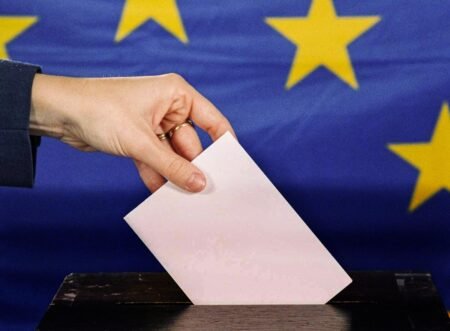(BRUSSELS) – Almost all trade in goods between the EU and Mexico are to be duty-free, including in agriculture, following Saturday’s agreement on a new trade deal, part of a broader, updated global agreement.
Simpler customs procedures will benefit EU industry, says the Commission, including pharmaceuticals, machinery and transport equipment sectors. It also lays down progressive rules on sustainable development.
Part of the agreement commits the EU and Mexico to effectively implementing their obligations under the Paris Agreement on climate change. It is also the first EU trade agreement to tackle corruption in the private and public sectors.
“In less than two years the EU and Mexico have delivered a deal fit for the economic and political challenges of the 21st century,”said the EU’s Trade Commissioner Cecilia Malmstroem: “We now open a new chapter in our long and fruitful relationship, boosting trade and creating jobs. Today’s agreement also sends a strong message to other partners that it is possible to modernise existing trade relations when both partners share a clear belief in the merits of openness, and of free and fair trade.”
Once finalised and approved, the agreement is expected to benefit both companies and consumers across Europe and advance the EU’s values-based trade policy agenda, says the EU executive. The agreement in principle upgrades the EU’s trade relationship with Mexico, tearing down most of the remaining barriers to trade.
Since the previous EU-Mexico trade agreement came into force in 2000, trade between the EU and Mexico has risen at a rate of around 8% per year, resulting in an overall increase of 148% in trade in goods over the period. Despite these positive results, there was still a wide margin for improving the trade relationship that the new agreement is addressing, by making virtually all trade in goods duty-free.
The main elements of the agreement are:
1) Agricultural exports from the EU are set to benefit the most,such as poultry, cheese, chocolate, pasta, and pork.
The agreement will, in particular:
- provide preferential access for many cheeses such as Gorgonzola and Roquefort, which currently are up to 20%, and gain significant new access for many others within annual quotas;
- secure a considerable volume for milk powder exports in one of the largest markets, starting with 30,000 tonnes from entry into force, rising to 50,000 tonnes after 5 years;
- allow the EU to substantially increase its pork exports to Mexico, with duty-free trade for virtually all pork products;
- eliminate tariffs for products like chocolate (currently up to 30%) and pasta (currently up to 20%);
- ensure the protection from imitation for 340 distinctive European foods and drink products in Mexico, so-called geographical indications, such asComté cheese from France,Queijo São Jorge cheese from Portugal, Szegedi szalámi from Hungary, and Magiun de prune Topoloveni plums from Romania.This means that EU producers of traditional delicacies are not struggling against copies, and when consumers buy these products they can do so knowing they are buying the real thing.
When it comes to customs procedures, the new agreement will bring in new rules to simplify and speed up paperwork and physical checks at Mexican customs.
2) The agreement includes a comprehensive trade and sustainable development chapter, which sets the highest standards of labour, safety, environmental and consumer protection; introduces a new dialogue with civil society in all areas of the agreement, strengthens the EU and Mexico’s actions on sustainable development and climate change, notably the obligations both sides undertook under the Paris Agreement on climate change; and maintains and fully safeguards Member States’ right to organise public services the way they choose.
The agreement also includes an explicit reference to the precautionary principle that, already enshrined in the EU treaties, allows the EU to keep products out of its market as long as there is no scientific certainty that they are safe.
It will also be the very first EU trade agreement to include provisions to fight corruption, with measures to act against bribery and money laundering. The broader Global Agreement, of which the trade agreement is an integral part, also covers the protection of human rights, as well as chapters on political and development cooperation.
3) The agreement isa big step forward in giving companies mutual access to government contracts in both the EU and Mexico public procurement markets.EU and Mexican companies will be placed on an equal footing, irrespective of whether they present a bid in Mexico or in the EU. Mexico has also committed itself to enter into negotiations with the Mexican States to allow EU firms to tender for contracts at State level by the time the agreement is signed.
4) This opening goes hand in hand with setting a level playing-field: we agreed a high level of protection of intellectual property rights. This protects EU research and development and guarantees fair pay for EU artists, as well as the 340 traditional EU delicacies mentioned above.
5) The new agreement opens up trade in services, such as financial services, transport, e-commerce, and telecommunications. The agreement will also help develop an favourable environment for a knowledge-based economy, with a new chapter on digital trade. This will remove unnecessary barriers to online trade, like charging customs duties when downloading an app, and will put in place clear rules to protect consumers online.
6) On investment protection, the agreement improves investment conditions and includes the EU’s new Investment Court System, ensuring transparency and the right of governments to regulate in the public interest, and will also ensure that Mexico and the EU work towards the setting up of a Multilateral Investment Court.
Overall, this agreement will strengthen Europe’s leadership in shaping globalisation by putting in place trade rules that are in line with the EU’s core values and safeguard the EU’s interests and sensitivities. In doing so, it contributes to addressing challenges identified in the reflection paper on Harnessing Globalisation presented by the Commission as part of the White Paper process.
There remain some technical details to be tied up. Negotiators from both sides are set to continue their work to resolve the remaining technical issues and are due to finalise the full legal text by the end of the year.
The Commission will then proceed with the legal verification and translation of the agreement into all official EU languages, and will subsequently submit it for approval by the European Parliament and Council of the European Union.
In 1997, Mexico was the first country in Latin America to sign a Global Agreement with the EU. This came into force in 2000, and will be replaced by the new agreement once it is ratified.








